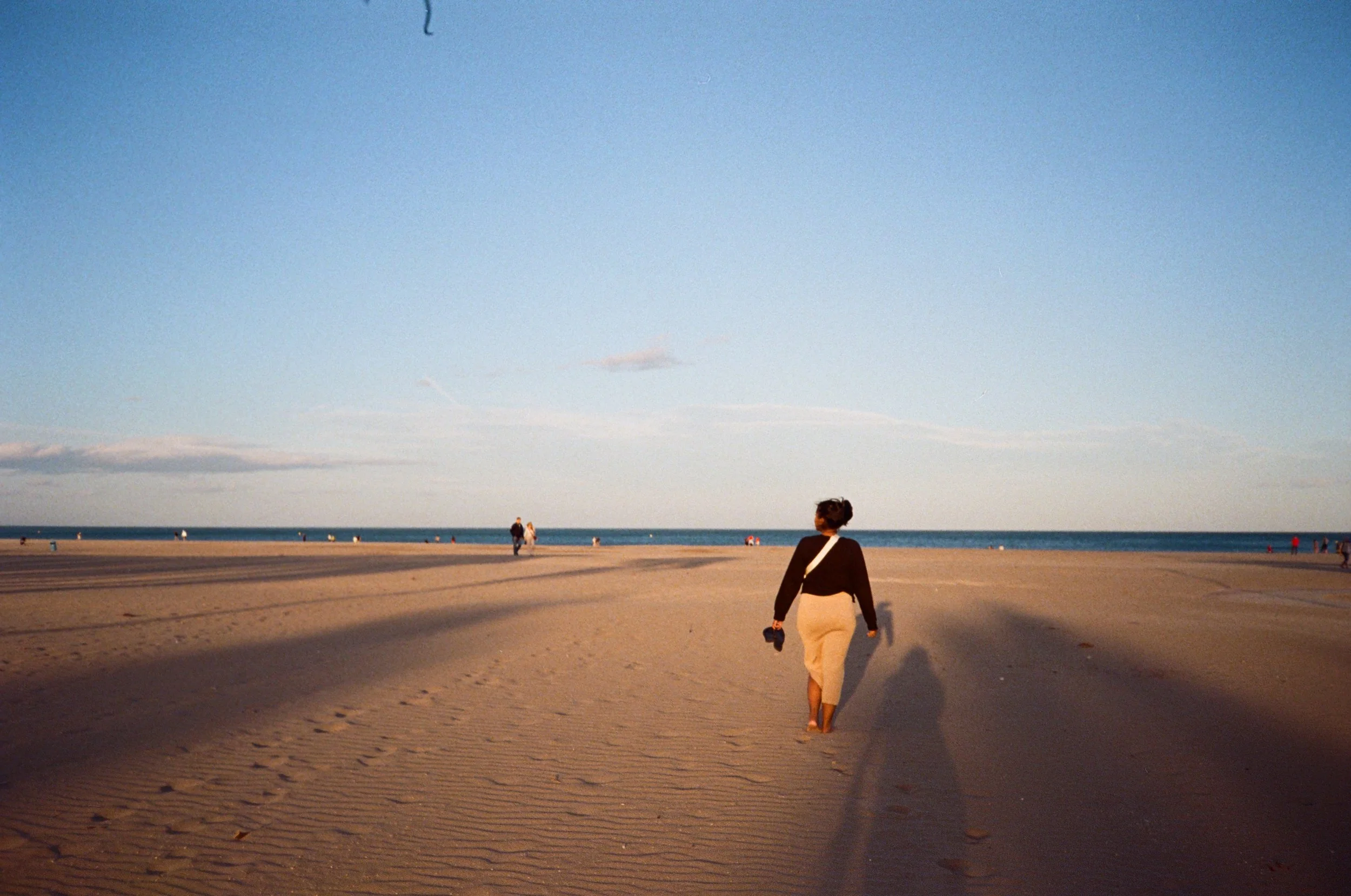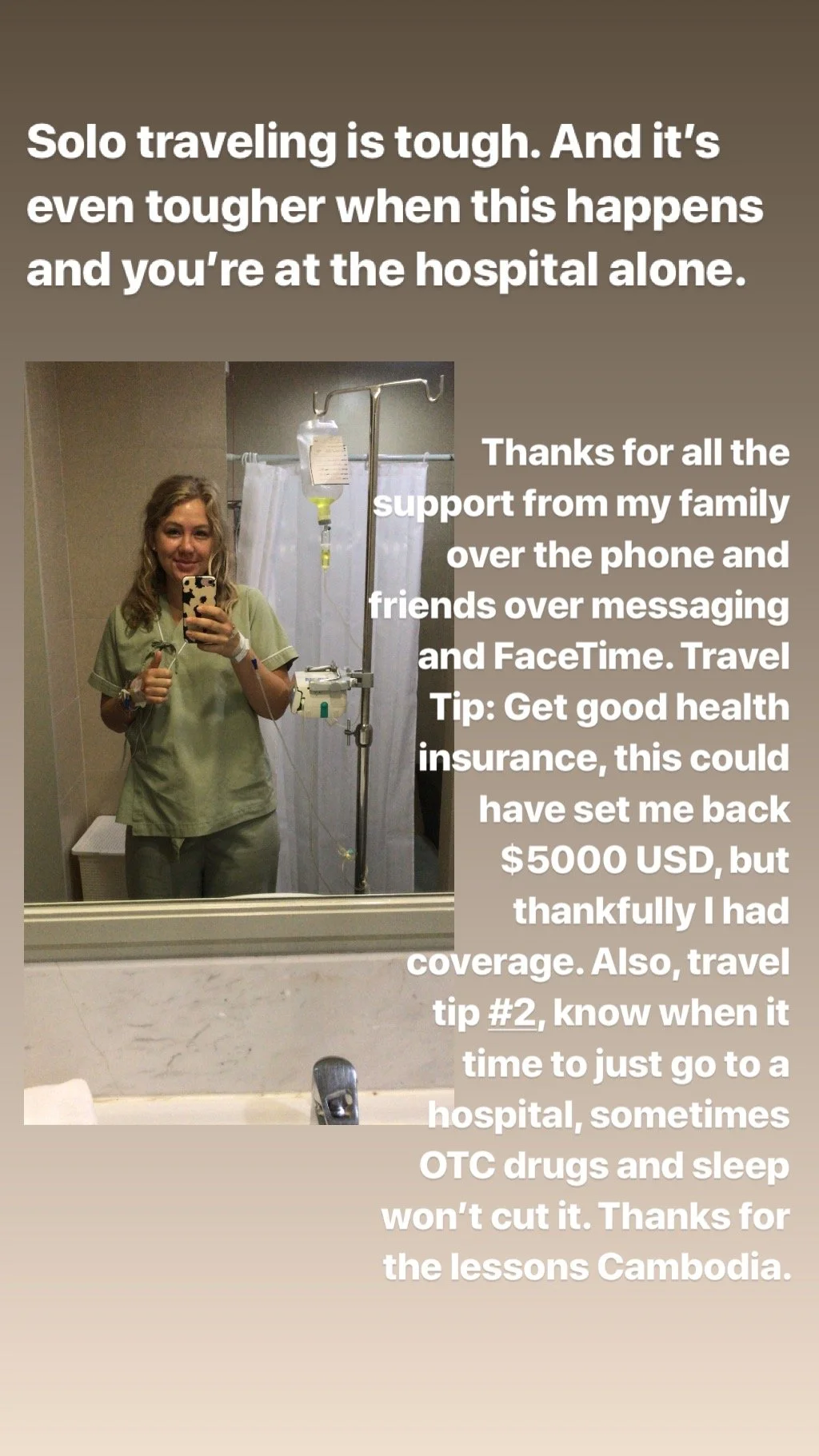Before You Go: What to Know Before Traveling Anywhere
There’s always that mix of nerves and excitement before a trip — the “did I forget something?” feeling as you’re zipping up your bag. I’ve had my share of trips where I nailed the prep, and others where I learned the hard way what not to do. Or not packed something as simple as a tshirt, only bottoms. Over time, I’ve figured out a few basics that make traveling a lot smoother.
Here’s what I always think about before heading anywhere — whether it’s a quick weekend getaway or a longer international trip.
Pick the Right Bag
Your bag sets the tone for your trip. I’ve dragged the wrong one through airports and cobblestone streets before, and trust me — it’s not worth it.
Carry-on suitcase: Great if you pack light and don’t want to deal with baggage claim. Just double-check size limits since they vary by airline.
Backpack: A lifesaver if you’ll be moving around a lot or taking public transit.
Fanny Pack/Bum bag: This is my new essential and I use it now everyday too. I like having it to put my passport, headphones and anything key to my flight so its easy to access. Some smaller airlines treat it like a personal item so you may need to swing it around to your back instead of front when checking in/getting onto the flight.
Checked luggage: Necessary if you’re away for a while or need more than the basics.
I have a post on choosing the right bag that still gets people reading it all these years later, because people need it! Here is the link to the article for reference.
An Instagram story from post-hospital in Cambodia after being stuck in the hospital with typhoid for a week.
Don’t Skip Travel Insurance
It’s not exciting, but it’s important. Travel insurance isn’t just about medical coverage — it also covers the things that can derail a trip:
Emergency medical: A must-have outside Canada. Hospital bills abroad can be eye-watering.
Trip cancellation & interruption: If something unexpected comes up before or during your trip.
Lost baggage or flight delays: Because bags do get lost and flights do get cancelled. And use an Apple Air Tag if you can to keep watch as to where it is.
If you live in Alberta, I can actually help you get quotes for travel insurance so you don’t have to spend hours comparing.
Top Travel Insurance Providers:
Manulife Travel Insurance
TuGo
Blue Cross
World Nomad (used to be my go to, but its gotten quite a bit more expensive in the last couple of years)
Plan Enough, But Not Too Much
I like to book the big things — flights, hotels, anything that sells out — and then leave the rest open. Some of the best moments come from just wandering and seeing where the day takes you. I like to highlight the places I want to go on a map and for me, all the GF restaurants and then I usually chose where to stay thats near to all that. I don’t always book my days, but will book tours that sell out if I need to.
Be Ready for Emergencies
A few small things can make a big difference:
Download the right apps. I always get GoJek and Grab for SE Asia ahead of time, but Whatsapp is key for wifi only communication and if you’re going to China, you need WeChat, and to have all of your info stored in WeChat (Google or anything else really won’t work when you land and I learned the hard way when I couldn’t access my outbound flight info from Gmail when I landed).
Keep digital and paper copies of your passport and ID.
Share your itinerary with someone at home. And your location. Even having someone across the water knowing where you are just gives some level of peace of mind.
Save emergency numbers in your phone (not everywhere uses 911).
Carry a backup credit card and a bit of local cash. Stash it somewhere hidden and separate to your main bag.
Do You Need to Learn the Language?
No — but learning a handful of words goes a long way. “Hello,” “thank you,” “please,” or any other key phrases “No gluten please” (lol) can make interactions way easier and more respectful.
A Few Other Things I Always Check
Currency: Don’t rely on airport exchanges. Order ahead or use a good travel credit card. I like to get a bit of each for wherever I’m travelling and then stash it a couple places in my bag so if something gets stolen I’m not stuck. I also usually bring two credit cards for the same reason, but also if someone skims your credit card (has happened to me twice) or if the ATM eats your card (has also happened to me), you have a backup. This is key if you’re travelling alone.
Adapters: A universal adapter is worth packing every time. I’ve had this one for about 7 years and its lasted me throughout every country.
Health prep: Look up vaccinations and refill prescriptions before you go. I usually use a travel clinic, or at the minimum this CDC website to check what I may need for whatever country I’m travelling to.
Comfort basics: First aid kit, water bottle, and good walking shoes.
Travel doesn’t have to be complicated — but a little prep goes a long way. The right bag, good travel insurance, and a balance between planning and leaving space for the unexpected makes the whole experience better.
And if you’re in Alberta, Canada and want help with travel insurance, I can get you quotes and make sure you’re covered before you go. That way, you can focus on actually enjoying your trip instead of worrying about what could go wrong. Shoot me an email if you have any questions.
Love M



